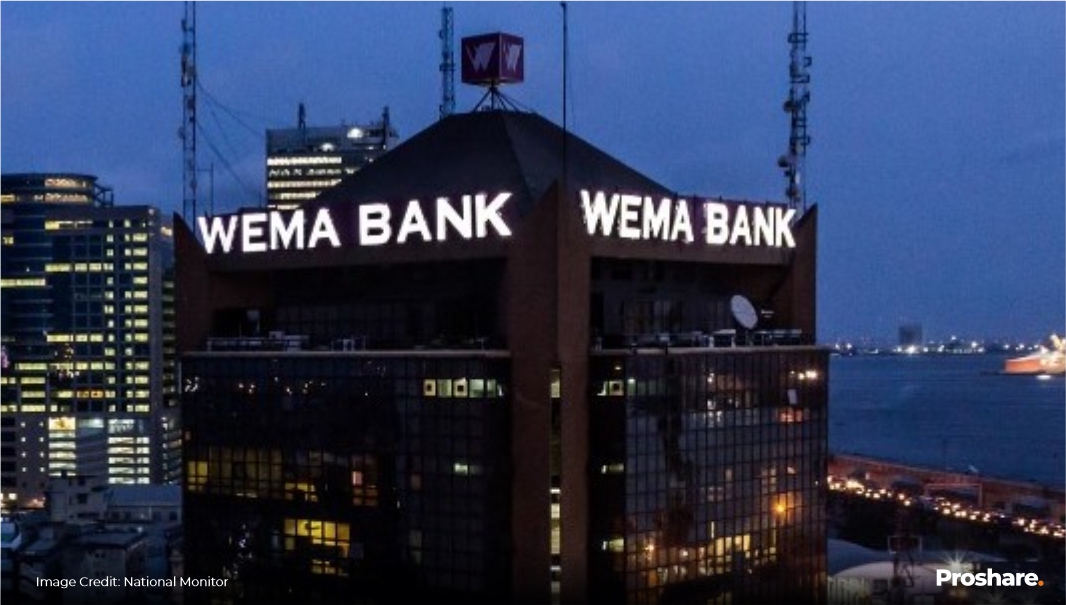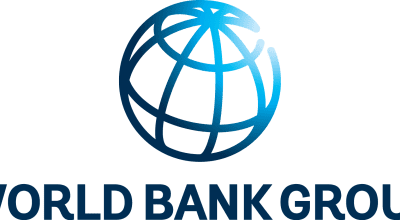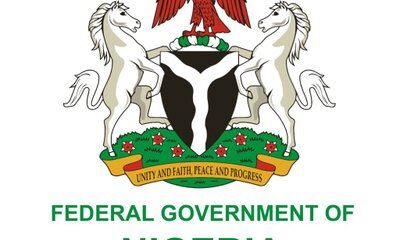Business
Lack of sustainability eroded of $1.5bn World Bank SFTAS programme — Auditor General

By Matthew Denis
The Auditor General of the Federation, Shaakaa Kanyitor Chira has disclosed that lack of sustenance measures by policies has eroded the implementation of the $1.5 billion World Bank-Assisted States Fiscal Transparency Accountability and Sustainability (SFTAS) programme.
He made the disclosure during the 2023 edition of the Subnational Audit Efficacy (SAE) Index conducted by Paradigm Leadership Support Initiative (PLSI), a non-profit organisation fostering public accountability held in Abuja on Thursday.
The Auditor General who was represented by the Director of Audit, Planning of the Office of Auditor General of Federation (OAGF), Fawale Bisayo Ayinla said, “it is disheartening to note that all improvements in transparency and accountability during the implementation of $1.5billion World Bank assisted States Fiscal Transparency Accountability and Sustainability (SFTAS) programme which immensely encouraged fiscal transparency, accountability and Sustainability at the Subnational level had been eroded due to lack of sustenance measures by the police actors.”
“I’m deeply encouraged and motivated by the commitment demonstrated by the paradigm leadership support initiative in championing the cause of good governance and accountability in the country.”
The Executive Director of PLSI, Olusegun Elemo, said the SAE Index 2023 revealed that 34 States (except Anambra and Benue) have modern audit laws to guarantee the independence of Supreme Audit Institutions and strengthen public audit practices at the state level.
Elemo explained, however, that the improvement witnessed in the policy landscape has not yielded much due to the lack of effective implementation of enacted audit laws in various states which continue to stand in the way of accountability and development.
He said, “The Subnational Audit Efficacy Index, initiated in 2021, serves as an annual scorecard assessing the temperature of public finance management and policy implementation practices at the state level.
“We retained the same methodology deployed for the 2022 assessment and collected, analysed, and validated data provided by Supreme Audit Institutions, Public Accounts Committees, Offices of Accountant-General, Civil Society and Media Organisations in all 36 states of the federation.”
Elemo further noted that PLSI would continue to utilise evidence from its annual assessment to provide tailored support to subnational governments especially in delivering technical assistance to strengthen capacity of relevant state and non-state actors to enhance transparency and accountability practices for improved quality of life for citizens.
He expressed concern over the waning performance of states, noting that results from the latest assessment indicated further decline in performance of policy actors and erosion of reforms needed to sustain and improve on the World Bank-Assisted States Fiscal Transparency, Accountability and Sustainability (SFTAS) Programme for Results implemented between 2018 and 2022 of which $1.5bn was provided to state governments as grants.
“While the average score for the 2022 assessment showed 31.81 percent, the 2023 Index revealed a total average of 30.58 percent indicating a 1.23 percent decline year on year,” he stated.
Elemo elaborated on several cross-cutting recommendations aimed at enhancing public finance management practices at the subnational level in Nigeria including the need for the Executive, Legislature, and the Office of the Auditor-General at the state level to collaborate to remedy inadequacies in the audit legal framework and implement the audit law effectively.
“Findings from the report showed that only 4 out of 36 States have made progress toward implementing financial autonomy and 12 out of 36 States have implemented legal provisions to activate administrative independence for the Office of the Auditor-General.
“Also, the report noted that none of the 36 States produced a standard performance audit report on the government’s programs, projects, or policies in the 2022 financial year.”
The highlight of the event was Ekiti and Yobe states emerging the best-performing states in terms of transparency and accountability in the management and utilisation of public funds and implementation of public policies.
Lagos and Benue states were placed as the least occupying 36 and 35 positions.
The SAE assesses the level of transparency and accountability operational in the management and utilisation of public funds and implementation of public policies across all 36 states of the federation through public audit and key actors in the public audit action cycle.
Ekiti and Yobe states scored 73 percent followed by Akwa Ibom and Katsina states that secured 3rd and 4th positions with 60 percent and 53 percent.
Furthermore, only 3 out of 36 States are sufficiently involving civic and media actors in the audit process of their states and just 5 out of 36 States have effective Public Accounts Committee in their Houses of Assembly.
Business
NDIC increases maximum deposit insurance coverage for failed banks


The Nigeria Deposit Insurance Corporation (NDIC), has reviewed upward the maximum deposit insurance coverage for depositors of all licenced deposit taking financial institutions in event of bank failure.The deposit insurance is the government’s guarantee that an account holder’s money at an insured bank is safe up to a certain amount.
The Managing Director of NDIC, Mr Bello Hassan, told newsmen in Abuja that the deposit insurance coverage level for Deposit Money Banks (DMBs) were reviewed from N500,000 to five million naira.
Bello said on Thursday, that the insurance coverage for Micro-finance Banks (MFBs) had been increased from N200,000 to two million Naira, which would provide 99.27 per cent coverage of total depositors.
He said that Primary Mortgage Banks (PMBs) were increased from N500,000 to two million naira with full coverage of 99.34 et cent compared with the current 97.98 per cent.
For subscribers of Mobile Money Operators (MMOs), he said that the deposit insurance coverage had increased from N500,000 to five million per subscriber, per MMO.
Bello said the Payment Service Banks (PSBs) insurance coverage had also increased from N500,000 to two million naira.
He said the adoption of the revised maximum deposit insurance coverage would be supported by the Corporation’s funding, represented by the balances in the various Deposit Insurance Funds (DIFs) and expected annual premium collection.
Other support would be enhanced supervision to reduce the likelihood of bank failures, effective bank resolution frameworks and other funding arrangements provided by the NDIC Act.
Bello said that factors considered in the upward review of the coverage level were deposit distribution, impact of inflation, per capita Gross Domestic Product (GDP), exchange rate and other statistical models.
”NDIC’s mandate of Deposit Guarantee is a critical component of depositors’ protection, as it guarantees the payment of deposits up to a maximum set limit in the event of bank failure.
”The deposit guarantee, covers depositors of all deposit taking financial institutions licenced by the Central Bank of Nigeria (CBN) , which include DMBs, MFBs, PMBs, Non-Interest Banks (NIBS), Payment Service Banks (PSBs) and subscribers of MMOs.
”We need to stress that the high level of uninsured deposits posed a risk of bank runs.
”This is in line with our commitment to enhancing depositors’ protection, public confidence, financial inclusion, and stability of the financial system.
“I am pleased to announce that the NDIC’s Interim Management Committee (IMC), approved an increase in the maximum deposit insurance coverage levels for all licenced deposit taking financial institutions.
”The revised deposit insurance coverage has balanced the NDIC’s goals of deposit protection and financial system stability with incentives for depositors to practice market discipline and prevent banks from unnecessary risk-taking and moral hazard.
”Consideration was given to ensure that the coverage was limited but adequate enough to protect a large number of depositors,” he said.
The managing director reaffirmed the Corporation’s commitment to protecting depositors and contributing to the stability of the financial system.
Business
Wema Bank marks 79th anniversary


Wema Bank, the pioneer of Africa’s first fully digital bank, ALAT, on Thursday announced a joint celebration, marking its 79th anniversary and ALAT’s seventh year celebration.
Its Managing Director/Chief Executive Officer, Wema Bank, Mr Moruf Oseni, disclosed this in a statement in Lagos.
Oseni said the significant celebration commemorated nearly eight decades of service and innovation in the Nigerian banking sector and the bank’s seven years of digital excellence with ALAT.
He said that since inception in 1945, Wema Bank had been at the forefront of financial innovation, constantly adapting to meet the evolving needs of its customers.
According to Oseni, the bank’s evolution from being Nigeria’s oldest indigenous bank to being at the forefront of innovation, pioneering Africa’s first fully digital bank, ALAT, has been a true story of resilience and transformation.
“At 79, Wema Bank stand stronger than ever, and this achievement would not have been possible without the support of our customers and employees.
“We thank them for believing in the Wema vision, for entrusting their financial security to us, and for allowing us to contribute to their personal and professional aspirations.
“Their faith in us is deeply cherished, and we are honored to serve them.
“As we mark our 79th year today, we reaffirm our commitment to empowering lives through innovation, and exceeding our customers expectations with unparalleled banking experiences tailored to their needs.
“Our pledge is to stand by our customers through every stage of life, offering enabling platforms to accelerate their growth and propel them to extraordinary heights,” he said.
He said that the bank’s 79 years had been remarkable and it anticipated more inspiring decades of progress with the support of customers and employees towards setting new standards in financial services to redefine the future.
“As part of the anniversary celebrations, Wema Bank and ALAT are rolling out a series of customer-focused activities designed to reward loyalty and enhance the customer experience.
‘Throughout the anniversary month, customers will enjoy various promotions, including discounts on transactions, cash prizes, special loan offers and much more.
“This anniversary is more than a celebration; it’s a reaffirmation of Wema Bank’s resilience and ongoing commitment to innovation and customer satisfaction in a competitive industry.
“Both Wema Bank and ALAT are poised for further growth, with strategic initiatives designed to enhance customer-centric services and expand the reach and capability of digital banking solutions,” he said.
Business
May Day: ACCI tasks FG on conducive environment for workers


The Abuja Chamber of Commerce and Industry (ACCI) has urged the Federal Government to provide a conducive environment for workers to ensure efficiency and effectiveness.
The President of ACCI, Emeka Obegolu, said this in his message to commemorate the 2024 Workers’ Day.
“The chamber applauds all workers in Nigeria for their effort, hard work, and dedication toward the national economic growth and development of the country.
“To mark the occasion, I urge the federal government to continually create a friendly working environment for the Nigerian workers and provide the necessary materials and resources needed for an efficient and effective workforce.”
The theme of the 2024 celebration is “Safety and Health at Work in a Changing Climate.”
According to Obegolu, the theme is apt and has significant implications for the Nigerian business community.
He said that climate change exposed workers to various health risks, such as heat stress, and extreme weather events as well as natural disasters which could disrupt business operations and supply chains.
“Businesses need to assess these risks and implement measures to protect the health and well-being of their employees.
“There is also a need to have resilience plans in place to ensure business continuity and minimise the impact of climate-related disruptions,” he said.
The ACCI president called on government at all levels to introduce new regulations and policies related to workplace safety and health in the context of climate change.
Obegolu said businesses needed to stay informed about these changes and ensure compliance to avoid legal and financial consequences.
He said, “Commitment to workers’ safety and health in the face of climate change can enhance a business reputation and build trust with employees, customers and other stakeholders.
“We (ACCI) will continue to advocate safety and health at the workplace in a changing climate.
“This is because we are a chamber of commerce that seeks not only the interest of the business community but also that of workers.
“I wish all Nigerian workers a happy Workers’ Day on behalf of the executive council and members of the chamber,” he said.
-
capital market2 years ago
Rt.briscoe, FBNH, Others halts negative performance of stock market
-
Finance3 months ago
Court orders Sen. Victor Umeh to repay N136m bank debt to AMCON
-



 Abuja Update2 months ago
Abuja Update2 months agoUNDP, FG partnership needed to achieve inclusion, equity- Minister
-
Abuja Update1 month ago
Banks drive stock market performance with N147bn gain
-



 Business1 week ago
Business1 week agoTingo Group unveils Tingo Electric, Tingo Cola drink at Lagos launch
-



 Health2 weeks ago
Health2 weeks agoCapacity training will reduce migration of health workers- NPHCDA
-
News4 months ago
Oil thieves sponsoring malicious media campaign against Navy – Spokesman
-



 Infotech1 month ago
Infotech1 month agoWorld Backup Day: NITDA urges Nigerians to ensure backup of data














